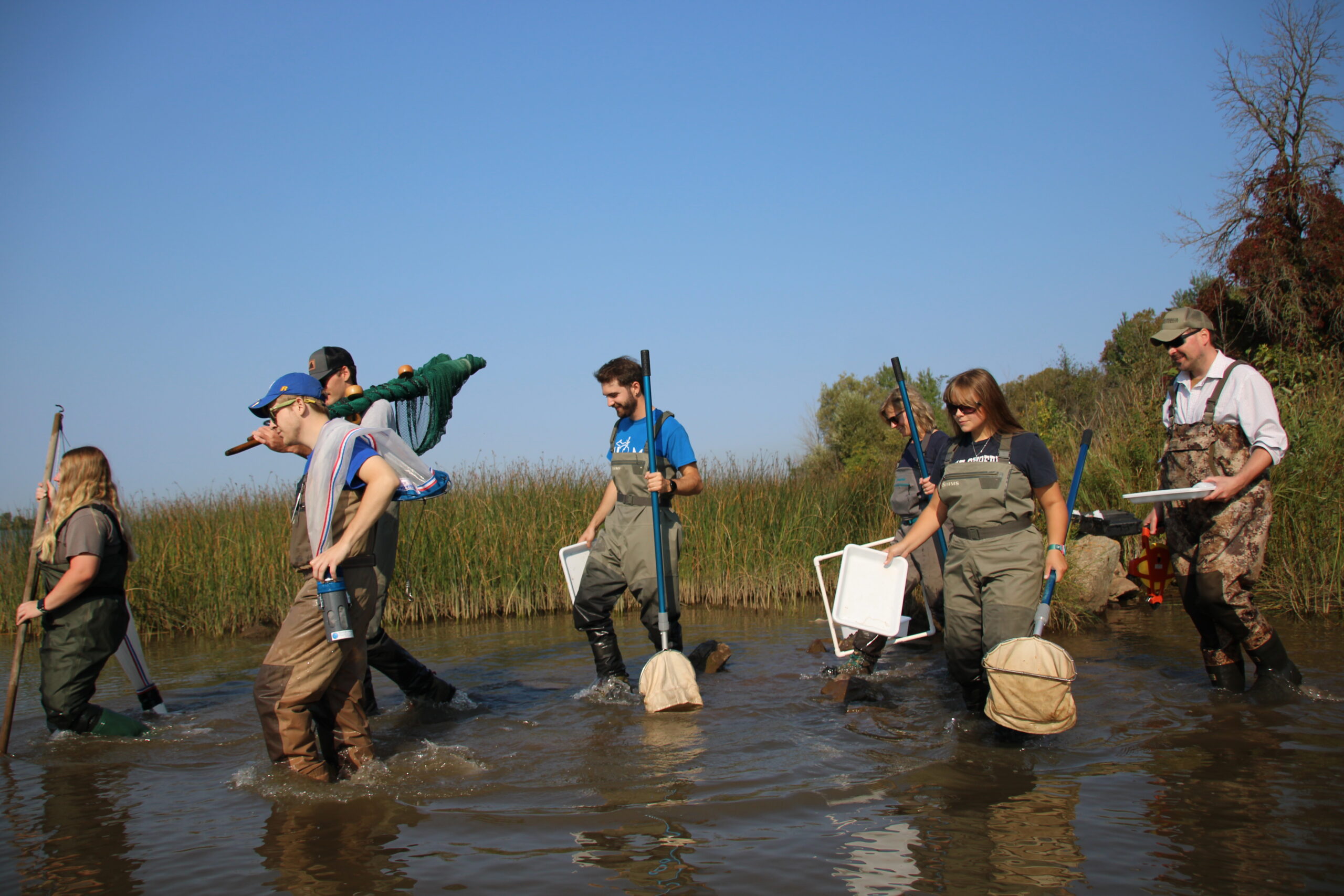
FOR IMMEDIATE RELEASE
Date: August 26, 2025
Contact: Connor Tetzlaff, Assistant Director of University Marketing
[email protected]
SAULT STE. MARIE, Mich. – Undergraduate researchers at Lake Superior State University (LSSU) are on the front lines of groundbreaking environmental research that could change how scientists and decision-makers respond to oil spills in freshwater systems. At LSSU’s Center for Freshwater Research and Education (CFRE), students are conducting one of the first studies to replicate real oil spill conditions in large ‘mesocosms,’ controlled environments that replicate freshwater wetlands found throughout the Great Lakes region.
In these mesocosms, fish, aquatic invertebrates, sediments, and plants are exposed to varying levels of oil to evaluate how different components of the ecosystem respond. The findings help identify the most vulnerable parts of the Great Lakes food web, from zooplankton to fish, and inform more targeted and effective oil spill response strategies.
The project is part of a multi-institutional, international collaboration that includes Algoma University, University of Windsor, and the U.S. Coast Guard Great Lakes Oil Spill Center of Expertise, in addition to LSSU. Funded by Natural Resources Canada’s Multi-Partner Research Initiative, the research is providing LSSU students with invaluable, hands-on scientific experience.
One of these students, Kennedi Johnson, has been working closely with Dr. Michael Twiss of Algoma University to examine how phytoplankton communities change after oil exposure. “Being a part of this research project has been an incredible experience,” Johnson said. “It’s exciting to know that I’m contributing to something that has real-world importance, especially in a region like the Great Lakes, which are such a vital water resource. This project has shown me that I’m on the right path and made me even more excited for the career I’m working towards.”
Faculty and collaborators echo the importance of this work:
“We know oil spills are a real risk in the Great Lakes, but we still have a lot to learn about how they affect freshwater food webs. This project is helping fill that gap, and our students are driving it forward.” – Cecilia Heuvel, Post-Doctoral Research Associate, CFRE
“Shared waters require shared resources. This partnership and support from Natural Resources Canada ensure we meet our collective responsibility to protect this crucial ecosystem.” – Dr. Michael Twiss, Algoma University
“The Great Lakes are arguably the most important natural resource on the continent. Binational cooperation like this is essential for their long-term stewardship.” – Dr. Mike McKay, University of Windsor
“The multidisciplinary nature of this project is providing amazing opportunities for our students. It’s exciting to see them building their skills and professional networks in ways that will serve them well beyond graduation.” – Dr. Kevin Kapuscinski, CFRE
This work does much more than just teach LSSU students about research. It gives them a real opportunity to actively shape the future of freshwater protection. The data collected from this study will contribute to stronger, research-backed oil spill response plans, ensuring the Great Lakes will remain a resilient and thriving ecosystem for generations to come.